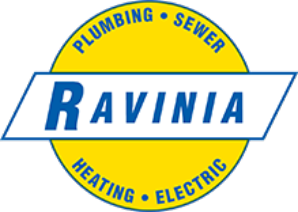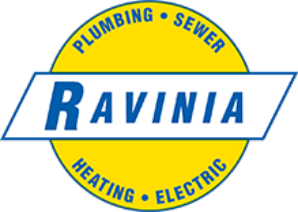
As Chicagoland area residents and business owners, we know that winter weather can cause a major impact on our daily lives as well as our homes. After a winter storm, you probably grab the shovel or start up the snow blower to clear your driveway and walkways.
While you’re outside clearing the snow, try to remember to think about your HVAC unit, too. Your outdoor air conditioner condenser or heat pump takes the brunt of snow and ice, and this equipment should be inspected on a regular basis during the winter months. Keep reading to learn more about how snow and ice can affect your HVAC system’s outdoor equipment and tips to keep them in good working order.
Air Conditioning Condensers
Fortunately, air conditioner condenser units are built to withstand the harsh winter weather, so not much maintenance is required during the winter. We don’t recommend covering the air conditioner during the winter as covers can lead to a haven for small pests, moisture buildup and the development of rust and corrosion.
However, if several inches of snow or ice accumulate on the top of the unit, use a broom to remove it.
Heat Pumps
Because your heat pump operates year-round to provide your home with heating and cooling, it’s a good idea to regularly inspect it during the winter. For the unit to work properly, you need to remove any excess snow or ice from the top and sides of the outdoor heat pump. Although heat pumps have a defrost cycle to remove that snow and ice, ice storms or large winter storms that dump several inches of snow can overwhelm the pump.
Knock or brush off any ice or snow that was settled on the top or stuck to the sides of your heat pump system. You can also pour warm water on the unit, especially if there’s ice covering it and you don’t want to damage the unit trying to get it off. To exercise caution, turn off the thermostat or set it to emergency heat while you remove the snow and ice buildup.
Finally, check that the heat pump is elevated four to eight inches above the ground to keep the coils clear of ice and snow and to ensure the unit can drain properly. Also, make sure to clear away any hanging icicles above the heat pump’s outdoor unit that could cause damage to it.
Furnace Exhaust Vents
Your furnace’s exhaust flue vents combustion gasses from the heat exchanger to the outside. It’s important to periodically check the furnace flue during the winter to ensure it’s not covered with snow or ice. Although furnaces have safety mechanisms in place in case an exhaust vent becomes clogged or stops working properly, you should keep an eye on it and clear away any snow or ice.
Contact Ravinia Plumbing, Sewer, Heating & Electric for Quality HVAC Services
At Ravinia Plumbing, we want to ensure your home’s HVAC equipment lasts throughout the cold winters in Chicago, whether it’s through heating system repairs, maintenance, or installation services. Contact us today to schedule service with one of our heating, cooling, and indoor air quality specialists.



